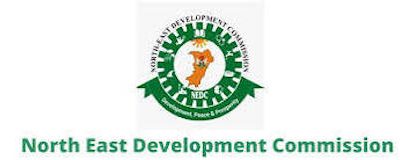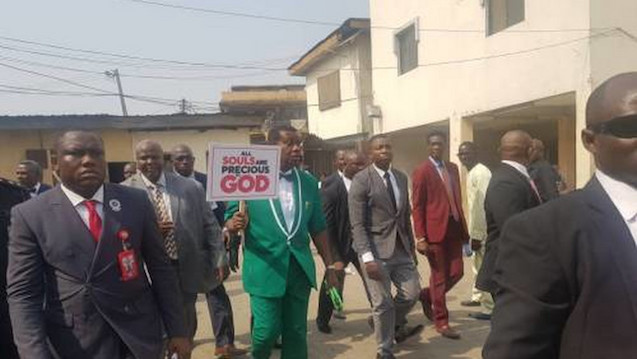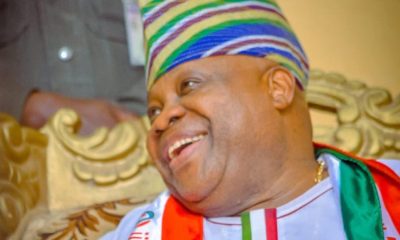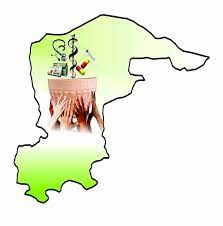General News
Nigeria Social Cohesion Data Report Underway
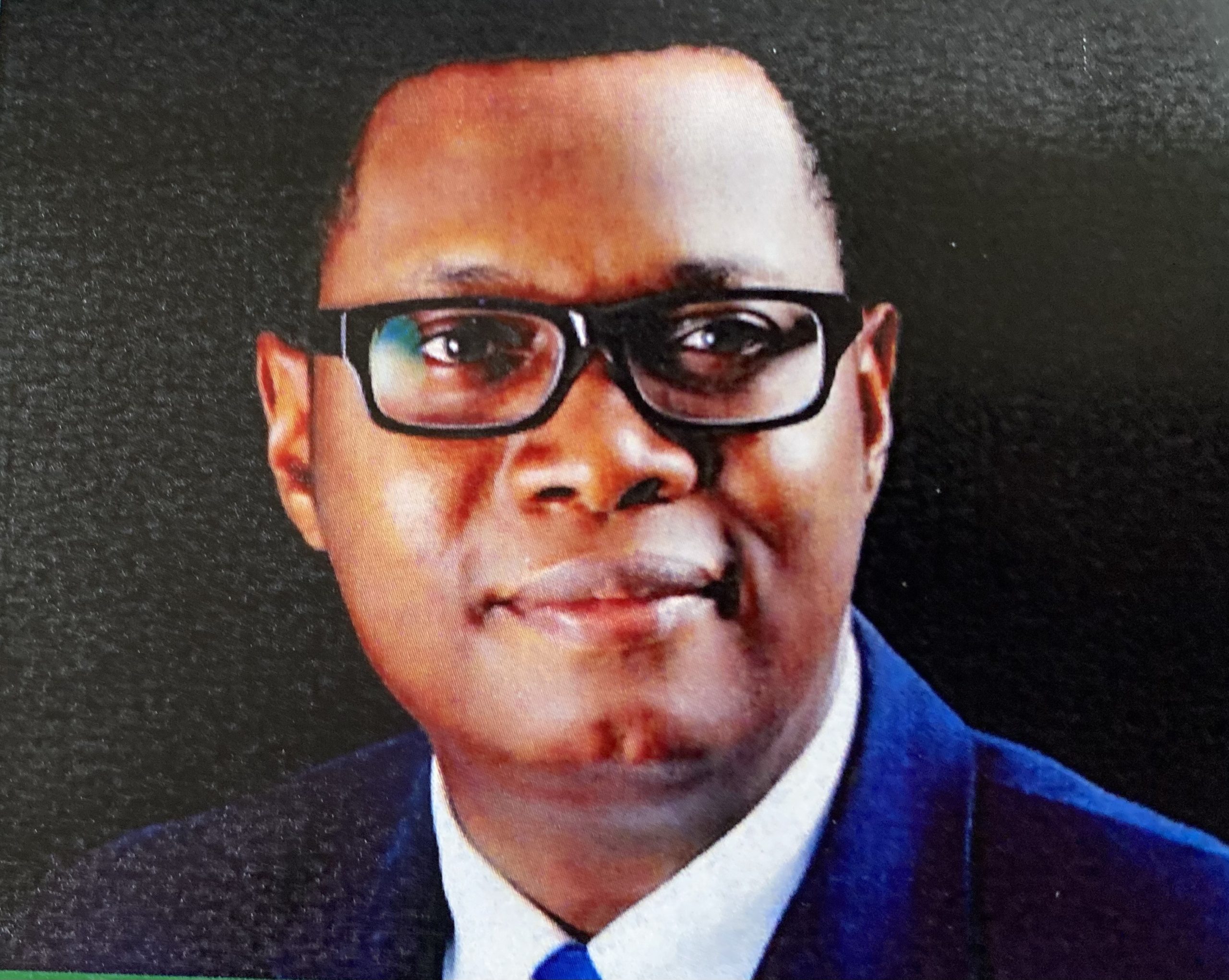
By Alih Shehu Aminu
The Executive Director of the Africa Polling Institute (API), Prof. Bell Ihua has revealed that Nigeria will launch its 2025 Social Cohesion Survey report on July 3rd 2025, to bridge the persistent gap between data availability and its practical application in fostering national unity, social harmony and long-term stability.
He made this known at a one-day workshop for journalists held in Abuja.
Themed, “Promoting Effective Media Reportage Through the Use of Social Cohesion Data”, the workshop was aimed at building the capacity of journalists and media professionals so as to interpret, contextualize and apply social cohesion data in storytelling and advocacy for peacebuilding and national integration.Ihua explained that while Nigeria faces deep-rooted social cohesion challenges – ranging from low trust in government to high polarization and poor access to justice – equipping the media with data literacy skills has become necessary and strategic to shape narratives that promote unity over division.
According to him, recent findings reveal that Nigerians tend to trust traditional and religious leaders more than governmental institutions, and that access to justice is largely viewed as a privilege reserved for the wealthy and well-connected.
“Our survey findings consistently show that many Nigerians believe that justice is not equally accessible,” Ihua said. “Only the rich and powerful seem able to seek redress, and this perception feeds into wider disillusionment with the state.”
He urged citizens to adopt a mindset that prioritizes national identity over ethnic, regional, or religious affiliations. “We must begin to see ourselves as Nigerians first. It is this shift in orientation that builds bridges of understanding and strengthens social cohesion.”
Prof. Ihua emphasised that data can provide vital insights into issues such as trust, social relations, solidarity, civic participation, and perceptions of national unity. He stated that understanding these dimensions can inform policy decisions, enrich journalism and improve national dialogue.
He noted that the upcoming 2025 survey will be API’s fourth national report on social cohesion, following earlier editions that helped define key indicators for measuring unity, tolerance, trust, civic responsibility and inclusiveness across the country’s diverse population.
“We present the data in a way that captures people’s attitudes and lived experiences. The goal is to use this data to drive development, peacebuilding, and inclusive governance,” he said.
On his part, Dr. Olusoji Adeniyi, a social policy expert and lead facilitator at the workshop, reiterated that the session was designed to close the gap between data generation and actionable response, pointing out that social cohesion as “the strength of relationships and the sense of solidarity within a society,” is significant for national stability, democratic governance and inclusive development.
“In Nigeria, we have rich datasets and warning systems, but the challenge has been translating that data into meaningful action,” he said. “Journalists, as agenda-setters, must be equipped to use this data in ways that deepen public understanding and shape policy.”
Adeniyi further noted that API’s nationwide surveys have revealed widespread public dissatisfaction and growing divides along religious, ethnic, and political lines, with many stakeholders still unaware of these dynamics or unable to apply them in policymaking or civic programming.
He called for urgent, data-driven interventions to mitigate fragmentation and strengthen national cohesion before these divisions escalate further.
Founder of Akweya TV and media trainer, Odoh Okenyodo advised journalists to approach social cohesion reporting with professionalism, responsibility, and a strong sense of civic duty. He warned that reporting on sensitive identity-related topics comes with inherent risks, particularly in conflict-prone areas.
“Journalists face real threats – from limited access to reliable information, to harassment and the absence of proper insurance or institutional protections,” he said. “But this must not deter you from reporting the truth responsibly. What matters is how we frame our stories and the language we use.”
He urged journalists to avoid sensationalism and instead focus on context, nuance and solutions-based journalism, especially when covering issues that cut across ethnic, religious, or regional lines.
Development expert, Titilope Ojo also addressed participants, reflecting on the difficult balance between editorial independence and media ownership interests. She acknowledged that many journalists work under employers who prioritise political or economic motives over nation-building narratives.
“Despite these challenges, journalists must remain conscious of their responsibility to promote national interest,” she said. “Nationalism is crucial for unity and progress. As media professionals, we have to intentionally push stories that inspire shared values and identity.”
Dr. Obiora Chukwumba, a journalism scholar and analyst, delivered a presentation on the role of media and storytelling in shaping national identity and fostering cohesion. He lamented the declining quality of journalism in Nigeria, citing poor funding and dwindling reach as major factors.
“Many media outlets no longer have the resources to do in-depth or investigative reporting,” he noted. “This affects their ability to tell stories that reflect the diversity of the Nigerian experience or promote unity.”
He called for sustainable business models for media organisations and renewed investments in training and innovation to elevate journalism standards.
Head of mass communication at Baze University, Dr. Hamisu Muhammad delivered a keynote lecture on the interplay between identity, nationalism, and the media. He attributed Nigeria’s sociopolitical challenges to “micro-nationalism” – a trend where ethnic or regional affiliations are prioritised over a shared national identity.
“Media can either be part of the solution or exacerbate the problem,” he said. “It all depends on the editorial choices we make and the values we choose to promote.”
He concluded by highlighting the urgent need for a more inclusive and nuanced media approach – one that recognises Nigeria’s diversity but actively works to bridge differences rather than entrench them.
As Nigeria prepares to launch the 2025 Social Cohesion Survey, API and its partners hope that the insights generated will not only inform government policy but also equip journalists and civic actors to tell stories that unify, heal and build trust.
General News
Otu Receives New Charts for Bakassi Deep Seaport
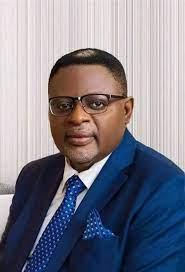
From Ene Asuquo, Calabar
The Cross River State Government has recorded a major breakthrough in its quest to transform the state into a maritime hub with the official presentation of the Hydrographic, Geotechnical, geophysical Report and New Navigational Chart for the proposed Bakassi Deep Seaport project.
Out, who spoke at a formal ceremony held in the State Executive Council Chamber in Calabar, described the event as a “historic milestone” that not only affirms Nigeria’s maritime boundaries but also sets the stage for an economic revolution across the Gulf of Guinea.
“This is truly a historic day, not just for Cross River State but for the entire country,” Governor Otu said.
“What we have achieved today replaces charts dating back to 1903 and settles long-standing debates about Cross River’s status as a littoral state. This chart clearly affirms our coastal status.”Otu emphasized that the updated maritime chart now aligns with S-100 international standards, positioning Cross River for deepwater commerce and international shipping operations.
“When we connect this with the ongoing coastal highway, we’re looking at a completely different city,” he said. “The economic potential is enormous.”
Otu acknowledged the foundational work of former NDDC Chairman Professor Eyo Etim Nyong, describing the seaport project as a dream revived and revitalized.
“We picked up this dream where the former governor, Professor Ben Ayade left off. Public funds had been committed, and we could not allow it to die. Today is another giant step toward its full realization,” he said.
With the technical phase complete and the report formally presented, Governor Otu disclosed that the project now awaits a final seal of approval from the Federal Executive Council (FEC).
“Once we get that FEC seal, work starts almost immediately,” he assured. “Cross River is ready, and this project is not just for us, it is for Nigeria and for West Africa.”
The presentation was led by Rear Admiral Ayo Olugbode, Hydrographer of the Federation and CEO of the National Hydrographic Agency of Nigeria, alongside senior naval officers including the Chief of Naval Staff, Vice Admiral Emmanuel Ogalla, and Rear Admiral Anyo Olokunle.
Rear Admiral Olugbode described the report as the culmination of an intensive multi-year effort, beginning with a formal flag-off on December 21, 2024, and followed by rigorous data acquisition starting January 6, 2025. The survey, he said, covered hydrographic, geophysical, and geotechnical dimensions, all aimed at ensuring safety, precision, and international compliance.
“This is more than just a technical report. It is the bedrock for constructing and operating the Bakassi Deep Seaport,” he said. “It provides essential data for engineering design, dredging, breakwater construction, and navigation safety.”
He added that the data would boost investor confidence, enable effective ocean governance, and contribute to global initiatives such as Seabed 2030, a project that aims to map the entire seafloor of the world by 2030.
Olugbode also praised the Cross River State Government for its unwavering support.
“Your Excellency, your administration’s commitment and facilitation of logistics created an enabling environment for the success of this complex operation,” he noted.
The Bakassi Deep Seaport is expected to catalyze investments in shipping, logistics, trade and tourism, while creating jobs and strengthening Nigeria’s position in the global blue economy.
General News
Tinubu on Visit, Approves Diplomatic Relations between Nigeria, Saint Lucia
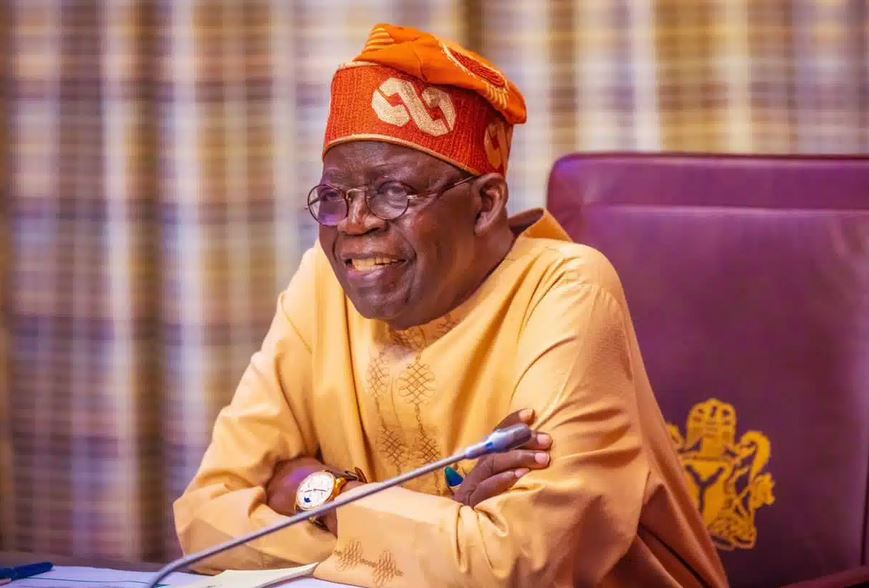
By David Torough, Abuja
President Bola Tinubu yesterday announced the establishment of diplomatic relations with Saint Lucia, describing it as a “symbolic bridge that will provide a gateway in fostering closer ties between us.”
Tinubu stated this while addressing a special joint session of the Senate and House of Assembly of Saint Lucia at the William Jefferson Clinton Ballroom, Sandals Grande, Gros Islet, Saint Lucia.
The President proposed creating a Joint Commission or Political Consultation Agreement as a mechanism for structured cooperation between Nigeria and the Organisation of Eastern Caribbean States (OECS).
Tinubu also announced that he would offer full scholarships to students from the OECS to promote cultural understanding, further strengthening the bond between Nigeria and the Eastern Caribbean states.
The Nigerian leader, who delivered his address in the presence of leaders from the OECS, emphasised the deep historical and cultural bonds between Nigeria and the OECS and called for greater people-to-people engagement.
The leaders of Grenada, Antigua and Barbuda, St Kitts and Nevis, Dominica, the Premier of Montserrat, Saint Martin and Saint Vincent were in the audience.
Tinubu declared Nigeria’s openness to visa waivers for OECS diplomatic and official passport holders and urged reciprocal gestures to facilitate smoother official travel and closer institutional cooperation.
Tinubu in a statement by his spokesman was quoted as saying: “I respectfully urge a reciprocal gesture to enable smoother movement of officials and foster closer institutional cooperation.”
He reaffirmed Nigeria’s commitment to deepening ties with OECS and Caribbean nations, anchored in shared African heritage and Pan-African ideals.
On economic diplomacy and trade, President Tinubu offered OECS access to Africa’s largest market and called for joint ventures and deeper commercial ties.
He advocated enhanced trade and investment partnerships, especially in agriculture, manufacturing, and services that would position Nigeria as a supplier and destination for OECS exports.
Tinubu proposed a maritime university collaboration and extended Nigeria’s Technical Aid Corps (TAC) programme to OECS countries.
He emphasised Nigeria’s readiness to provide skilled education, healthcare, and engineering professionals to support regional capacity-building.
Recognising the existential climate threats facing small island states, Tinubu called for joint research on adaptation strategies, sustainable agriculture, disaster preparedness, and climate-induced migration.
Reiterating Nigeria’s Afrocentric foreign policy, Tinubu emphasised the cultural and historical ties between Nigeria and the diaspora, as well as its enduring role in global Black solidarity.
While calling for unity, Tinubu quoted Marcus Garvey and an African proverb.
“Likewise, an African proverb teaches us: ‘If you want to go fast, go alone. If you want to go far, go together.’ Let us journey together, united in purpose and fortified by our common heritage,” he said.
General News
Group Commends Matawalle for Zamfara Cargo Airport Vision
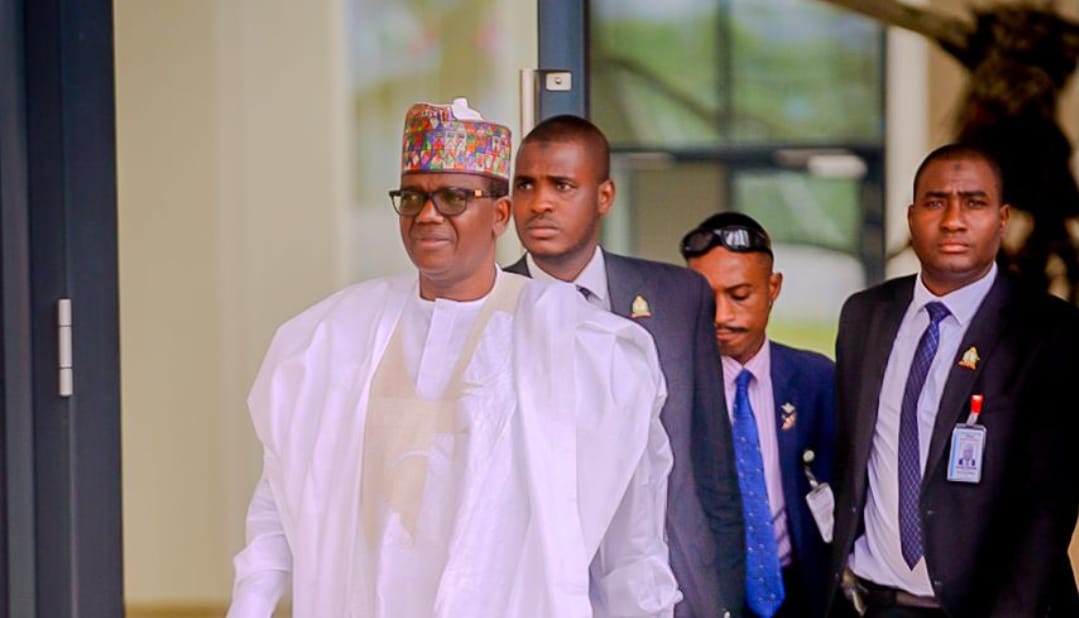
By David Torough, Abuja
A Zamfara-based civil society group has hailed the former Governor and current Minister of State for Defence, Dr Bello Matawalle, for his foresight in initiating the Zamfara Cargo Airport project.
The Zamfara Good Governance Group (ZGG), in a statement issued on Monday, praised Matawalle’s leadership, describing the cargo airport as a “strategic and transformative initiative” aimed at unlocking the state’s economic potential.
Chairman of the group, Aminu Kabiru Tsafe, said the airport project was designed to attract foreign direct investment into critical sectors such as mining, agriculture, tourism, and hospitality.
“Dr Matawalle awarded the project at N11.8 billion, with N7 billion already paid,and the construction has reached 60 percent completion before he left office, showcasing his fiscal discipline and developmental drive,” Tsafe said.
He noted that the former governor’s broader vision was to position Zamfara as an economic hub, capable of creating job opportunities and lifting residents out of poverty.
ZGG also commended Matawalle’s security achievements, stating that his administration rescued over 1,200 kidnapped victims and recovered significant weaponry, all with limited resources.
However, the group expressed concern over the revocation and re-award of the cargo airport contract by the current administration under Governor Dauda Lawal.
Tsafe accused Governor Lawal of inflating the project cost to N62.9 billion, and further to N90 billion in a revised budget, calling the move “unjustifiable and wasteful.
“It is important to remind the people of Zamfara and Nigerians that this is the same Dauda who, when coming into office, promised the people heaven and earth. He vowed not to touch the government’s coffers.
“But how come he inflated a project that was initially awarded at the cost of ₦11.8 billion to ₦60 billion? And that wasn’t enough—another variation of ₦30 billion has now brought the total to ₦90 billion.
“It is now left for the people to judge between Dr Matawalle and Dauda Lawal—who truly has the people’s interest at heart? Even an international airport would not require such a huge budget.
“Dauda clearly does not have the interest of Zamfara people at heart. We must tell ourselves the truth.”
He also remind the public that Lawal had promised the airport would be used for Hajj in 2023, a pledge that was never fulfilled.
ZGG criticised what it called Governor Lawal’s failure to build on the foundation laid by Matawalle, despite receiving significantly higher monthly allocations than his predecessor.
“Zamfara deserves better. We call for transparency and accountability in the management of public resources,” the group said.
The statement concluded by urging citizens to recognise and uphold the legacy of Dr Matawalle while demanding better performance from the current government.

